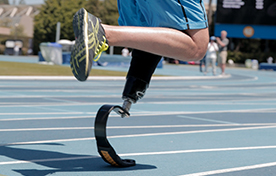Paraplegia
Paraplegia is a condition that leaves a person unable to voluntarily move the lower parts of his or her body, such as legs, feet and toes. There are two types of paraplegia: complete and incomplete. Each paraplegic’s individual circumstances will vary, but incomplete paraplegia describes a condition where a person has feeling with little or no movement, or has movement with little or no feeling. A person without feeling in or movement of his or her legs is considered to have complete paraplegia.
Regardless of type, paraplegia leaves victims facing an uncertain future wrought with costly medical procedures, ongoing rehabilitation, home modifications and in-home care. Even the best-case scenario — regaining feeling or movement after incomplete paralysis — will require an immense amount of resources. To make sure you have the resources you need to make as full a recovery as possible, you need accomplished personal injury attorneys with experience pursuing paraplegia injury claims. You need Doyle Law. It is not easy to maximize compensation for paraplegia victims in personal injury suits, but we have experience taking on these cases. More importantly, we have achieved successful outcomes for people who desperately needed financial resources to cover the costs of their injuries.
In 2013, we obtained the highest medical malpractice verdict in the history of Kern County on behalf of Charlene McKnight, a woman who was left a paraplegic after a botched spine operation. The verdict we obtained was for $26.8 million. The insurance companies know we are willing to go to trial to make things right for our clients, and this allows us to negotiate from a position of confidence. Are you ready to get the compensation you deserve? Contact us today for a free consultation with a lawyer. It will cost you nothing to get the representation you need, as we will collect nothing until we obtain a recovery for you.
We represent paraplegia victims in communities such as Los Angeles and Beverly Hills but are known nationwide for our ability to recover compensation for spinal cord injury survivors.








